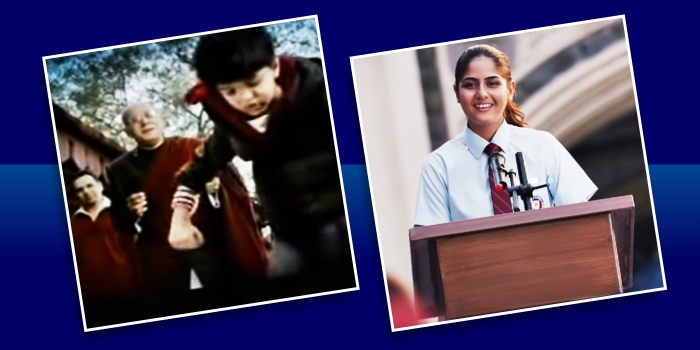Motilal Oswal’s latest ad was done in-house. But it was a replica of a campaign created for the brand in 2017 by MullenLowe Lintas Group. On paper, if the contract says ownership rests with the client, there’s nothing an agency can do about it. Yet, there is an ethical issue with taking an agency’s idea and executing it through someone else.

MullenLowe Lintas Group Chairperson Amer Jaleel said in a LinkedIn post, “There must be something one can do about a blatant and brazen copy of one’s creative mehnat. But apparently there isn’t. Still, there is IPR (and sadly agencies are not protected). And then there’s IPE. Ethics. Something we learn as practitioners of the creative arts.
“Forgotten! It’s common these days to take the most valuable output of the agency, ‘the brand idea’ and move on. Get the exact same campaign done ‘outside’. No shame. No guilt. No ethics.”

Responding to Jaleel’s post, ex-CMO of Motilal Oswal Financial Services Ramnik Chhabra said, “Acknowledge that while the original idea has come from the agency; it has been built by us together. Also assumed that since we have compensated the agency for the idea over previous campaigns; it is the clients (sic) property and can be used for a campaign created in-house.”
The core issue

Santhosh Padhi, CCO, Wieden+ Kennedy, elaborates on the core issue behind the chaos.
“We as an industry for the last two decades have not been united and there has been a massive fight within the existing agencies. Today, in order to impress clients, agencies are ready to work at a lesser cost than the competition. This is how we are existing as an industry, which is absolutely unwanted. The ad industry in the country knows how to communicate to 1.4 billion people. If we are not going to value ourselves, no one is going to. For the last two decades we have been undervaluing ourselves and as a repercussion, clients are taking advantage of it. That’s the reason why more and more contracts are coming handy for them,” he notes.
“In this particular case, if the contract clearly defines the terms and conditions and the usage of creativity, then I believe they should stick to the contract. Having said that , as an ad industry person, I will only stand my people from the creative community,” he adds.
Can agencies have co-ownership over their creative products?

According to Sandeep Goyal, Managing Director, Rediffusion, the word to be used is ‘ownership’ not ‘co-ownership’.
“Something that the agency has created belongs to the agency, no one else. Payment of a retainer doesn’t mean a creative product presented but not run becomes co-owned,” he says.

Ramesh Narayan, ad veteran and Founder of Canco Advertising, shares a similar opinion.
He says, “I don’t see why a client should want to have a monopoly on a creative idea given by an agency. I believe the idea of a key number was good on many counts. It gives agencies a sense of pride. It pinned responsibility where necessary. And in any case the creative message was for and on behalf of the client.”
Narayan believes that a simple internal agreement between the client and agency could iron out any legal issues on who owns the IP on the piece of advertising.
“And I have always believed that ethics are something that should be ingrained in every communications professional. At the clients’ side and the agency side. It is sad that we even need to discuss such fundamental issues,” he adds.

Kaustav Das, CEO, Ralph & Das, underlines that as long as agencies don’t learn how to own and protect their ideas they will be taken for a ride time and again.
Says Das, “There is a practice of client-agency agreements which should clearly spell out the nature of engagement and ownership of the ideas. Including the ownership post disengagement. Sadly most agencies treat that document like ‘mundane paperwork’. Most don’t even run it through their legal teams, leave alone an IP lawyer. They fritter away the only opportunity to own the ideas they will come up with.”
“Ownership of an Idea is governed by IP laws. There are certain processes to be followed to ensure an idea is IP-protected. If that due diligence is not done it will never stand legal scrutiny. And that’s where agencies need to start,” he adds.
Put a premium on ideas

Chockalingam S, Creative Director, OPN Advertising, believes that agencies deserve better compensation for the assets they help build.
“Not sure whether co-ownership is possible. But definitely, a performance-linked compensation or even a royalty fee would be fair for both sides. But I feel, agencies need to step up and put a premium on their ideas,” he says.
Commenting on the co-ownership over creative products, Padhi says, “It all depends on the contract that’s been drafted between the client. If the contract says that the agency has the perpetuity, then they have it, which can vary from three months to one year. I am sure after this incident people will come forward to put such clauses in the agreements moving forward.”
Is it feasible to implement the ownership or co-ownership?
Goyal believes that ownership can be established at any time. But adds that most agencies don’t have the stomach for a fight.
“There is nothing called co-ownership of an idea. But an idea can be licensed for a period of time. Even perpetuity. Frankly this is a legal debate. Clients and agencies do not have the competency to get into this debate,” offers Das.
“It takes two to tango. A good client usually knows how to get better value from their agency. Agencies should start with putting a better value for their ideas. For that, the agencies need to up the game. They should stop being a supplier, and try being a partner,” says Chockalingam.
The ‘Sar utha ke jiyo’ case…
We also asked agency hands whether there were any instances where co-ownership has been exercised in the past.
Goyal says, “My worst experience has been on HDFC Standard Life. I was at Dentsu then. We created this fabulous ‘Sar Utha ke jiyo’ campaign that catapulted the brand to new highs. But in came a Marketing Head and sacked us because he wanted an agency of his own choice.”
“The campaign line is still used by HDFC 20 years later. What co-ownership can one talk about?” he asks.
From his experience, Padhi recounts an example without naming a client.
He says, “During my stint with Taproot, for a client we created a product campaign for India. The client wanted to take it globally, which we opposed. After a lot of discussions, they agreed to pay for ‘beyond India’ usage.”
One thing is clear. If agencies do not put a premium on their work and work it into the contract, they can shout from the rooftops but the ownership will remain with the client.

















